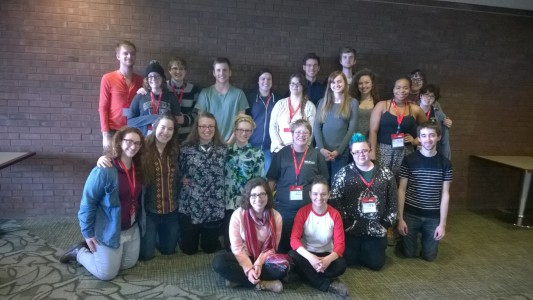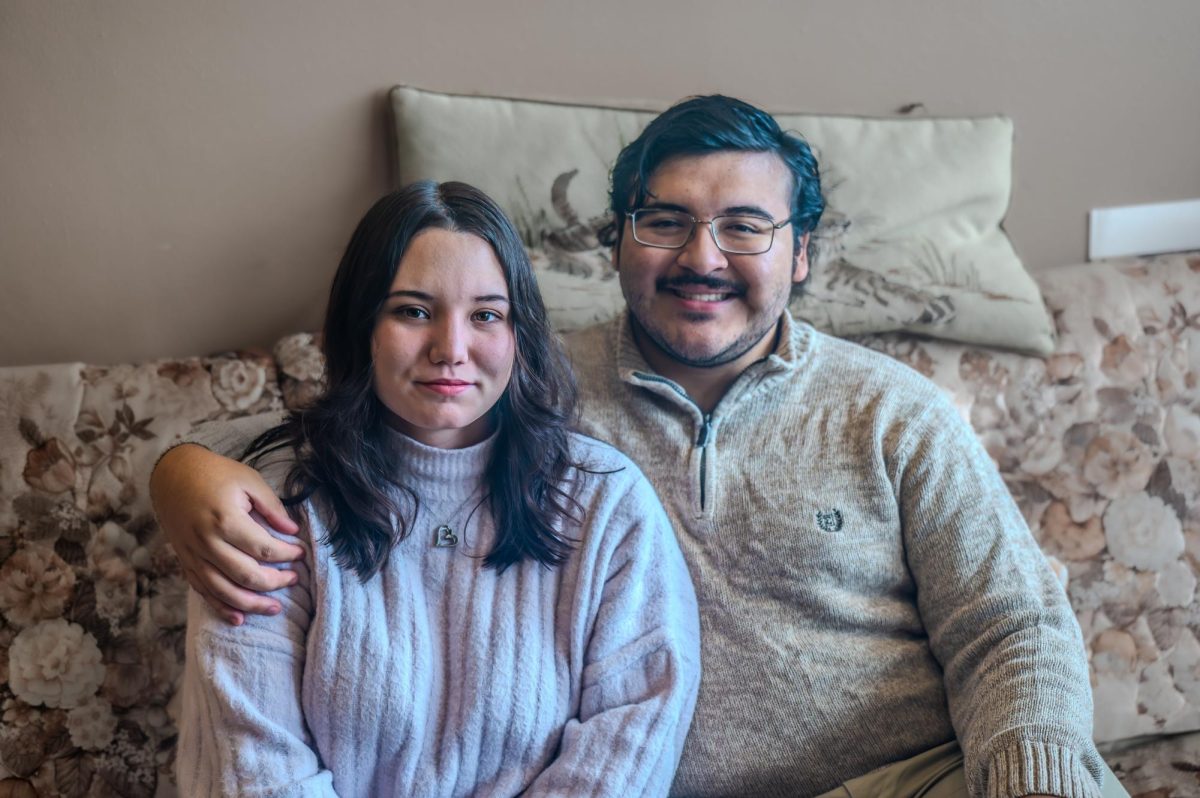
Last weekend, several Grinnellians attended the Midwest Bisexual Lesbian Gay Transgender Ally College Conference (MBLGTACC) at Illinois State University (ISU). One of the largest LGBTQIA+ conferences in the nation, MBLGTACC offered students from across the Midwest the opportunity to attend workshops, present papers and other academic work and listen to a myriad of speakers. This year’s lineup was particularly exciting, including “Orange is the New Black” favorite, Laverne Cox.
“Laverne Cox was pretty amazing. She spoke a lot about intersectionality in the queer community and about how she wasn’t summed up by the individual identities she recognizes but the sum of all of her identities. I think she did a great job of answering audience questions and making students feel validated in their experiences and their identities,” said Toby Baratta ’17.
“Her speech was amazing and inspirational,” added Olivia Queathem ’18. “I still can’t believe they let me be in the same room as her.”
Both referred to the actress and role model as “a goddess.” Still, it was not only Cox’s presentation that attracted Grinnellians to the conference. Queathem and Baratta decided to attend for a variety of reasons.
“I’m queer. I guess that’s the biggest reason,” Queathem said. “I wanted the opportunity to be in a space that makes me feel safe and accepted. Of course, it wasn’t an entirely accepting space—there are identities that are marginalized even within the queer community, including, to some extent, bisexuality, which is approximately where I technically fall on the spectrum—but it was a really nice opportunity to learn about various areas of research and network with other people who identify as LGBTQAI+.”
“I had heard about how great it was last year,” Baratta added. “I identify as queer and thought it would be a fun time to get to see and get together with other LGBTQAI+ individuals! Also Laverne Cox is a huge plus.”
Baratta even presented at the conference. “I ran a workshop on queer women in technology and finding intersectionality between women’s movements and queer movements in career industries. Our room was packed, and it was a really great time getting to see others who felt the kind of segmented overlap that I had seen and felt myself and to speak of ways to address that,” she said.
Despite the excitement, both agreed that the event was not without controversy and division. Throughout the weekend, several attendees expressed feelings of alienation and exclusion within the LGBTQAI+ community.
“One of the things that stuck with me from my talk was a comment that a student made about feeling removed from the queer feminist community in business because they were assigned male at birth and radical feminists didn’t think that their experiences fell under the umbrella of feminism. It’s really annoying that feminists would act that way, but a good check to myself and my thoughts of women’s movements about their own inclusivity,” Baratta said.
“There are still inclusivity/accessibility issues within the queer community. There were several pretty glaring problems in that area at the conference, even though the event as a whole was really good,” Queathem said.
Both Baratta and Queathem saw the conference as a bittersweet mixture, citing shining moments and problematic perspectives. Throughout the conference, the ISU Yik Yak feed was plagued with hate speech and threats against MBLGTACC attendees.
“There’s still a great deal of intolerance and even totally unfiltered hate toward the LGBTQAI+ community as a whole, as we saw on Yik Yak during the conference,” Queathem said.
The gross misuse of the anonymous social networking app reminded attendees that despite progress, there are still great strides to be made to protect the rights and safeties of the LGBTQAI+ community.
“Conferences like this are important because the rest of the world isn’t like Grinnell. Seeing the Illinois State University community on Yik Yak actually reinforced how much the rest of the world isn’t like Grinnell,” Baratta said. “People were saying how we should all die and different threats on there to the queer community, which, frankly, made a lot of the guests feel unsafe … it reminded me how much work there still is to do.”
The weekend reminded Baratta and Queathem of the importance of LGBTQAI+ activism.
“The bottom line is, people are not just unable to get married in certain states—they’re dying. They’re being murdered and driven to suicide. We need not just tolerance, but acceptance and love,” Queathem said.
“This isn’t over; it’s truly just begun,” Baratta added.



















































